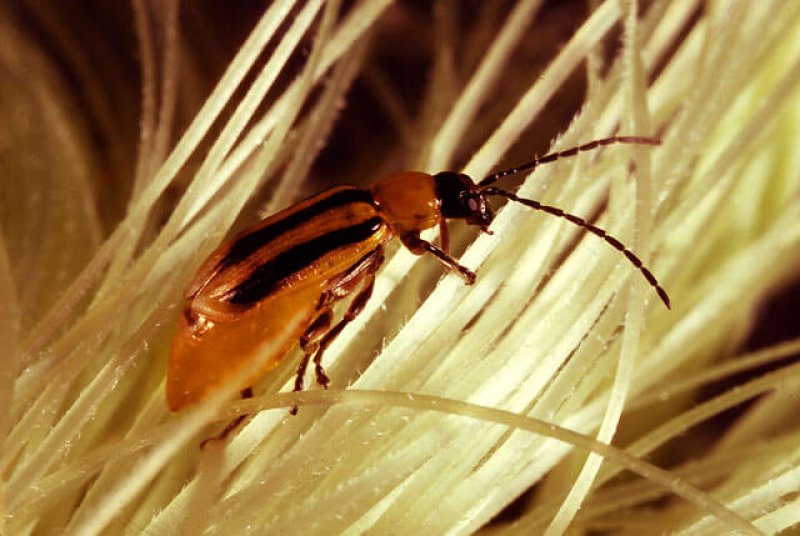Crop mismanagement may lead to rapid rootworm resistance to Bt corn, according to a study published in the Proceedings of the National Academy of Sciences.
Western corn rootworm used to cause billions of dollars in damage to corn fields, but the introduction of Bt corn, modified with the bacterium Bt (Bacillus thuringiensis) that produces natural proteins that kill pest insects, has resulted in a sharp decrease in rootworm damage as well as a reduction in the spraying of pesticides. But if farmers don’t use traditional crop management techniques such as crop rotation and refuges set aside and planted with non-Bt corn, rootworm will increasingly become resistance to Bt corn, wrote researchers at Iowa State University in Ames.
According to Wired, scientists recommend refuges to increase the chance that “rootworms would remain susceptible to the Bt toxin. By mating with any Bt-resistant worms that chanced to evolve in neighboring fields, they’d prevent resistance from building up in the gene pool.”
But the scientists’ own recommendations — an advisory panel convened in 2002 by the EPA suggested that a full 50 percent of each corn farmer’s fields be devoted to these non-Bt refuges — were resisted by seed companies and eventually the EPA itself, which set voluntary refuge guidelines at between 5 and 20 percent. Many farmers didn’t even follow those recommendations.
Nicholas Storer, a global science-policy leader for biotechnology at Dow AgroSciences in Washington DC, told Nature the study illustrates that if GM crops are not used as part of an integrated pest-management policy, resistance can develop quickly in an individual field.
Part of the problem is that rootworms are tough, and the Bt maize does not produce enough toxin to fully control them. The Bt toxins used against pests such as the European corn borer (Ostrinia nubilalis) kill more than 99.99% of their targets, whereas more than 2% of rootworms can survive Bt maize. Resistance in the worms can evolve rapidly in fields where the same kind of maize is grown every year — in Iowa it showed up after an average of 3.6 years.
Another study out of Cornell University and published earlier this month in the journal PLoS One concludes that the combination of natural enemies, such as ladybeetles, with Bt crops, delays a pest’s ability to evolve resistance to these insecticidal proteins.
Read the study: Field-evolved resistance by western corn rootworm to multiple Bacillus thuringiensis toxins in transgenic maize
Additional Resources:
- GM technology an aid in the ‘long, hard fight’ against Texas boll weevil, Southwest Farm Press
- Researchers confirm Bt corn’s benefits aside from pest resistance, Crop Biotech Update (ISAAA)
- Will pests develop resistance to GMO Bt crops? Not anytime soon, says Cornell study, PLOS One































